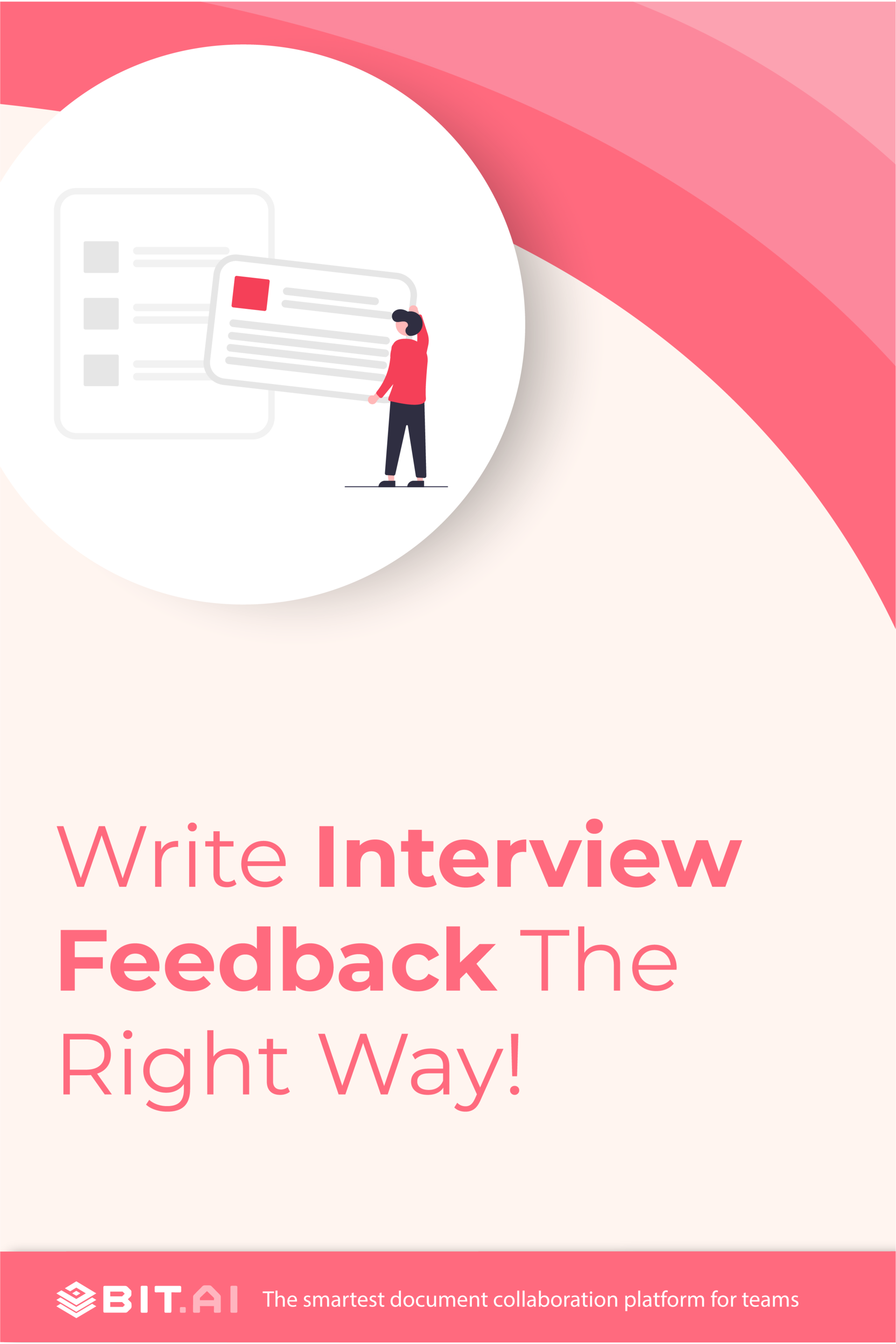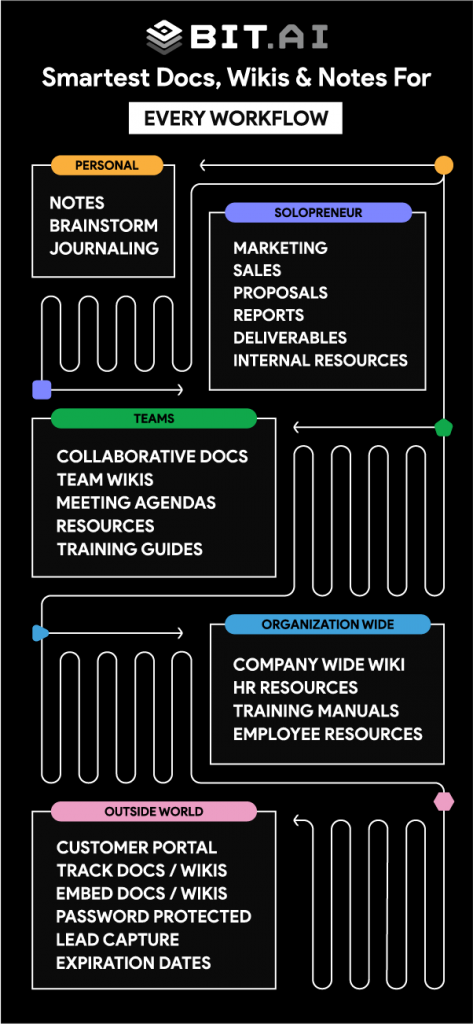“We all need people who will give us feedback. That’s how we improve.” – Bill Gates
Interviews are the keys to unlocking the hidden treasure chests of opportunities, revealing the golden path to success. Training on conducting interviews, assessing candidates, and selecting the finest resources is typically a prerequisite in every company with an HR team. A streamlined interview process empowers interviewers with a clear path to identify the necessary skills in applicants, resulting in valuable hires. Moreover, these interviewers often consult higher authorities to comprehensively assess the candidate’s capabilities, ensuring all aspects are thoroughly covered.
Within this article, we’ll delve into the essence of interview feedback—defining it, exploring when and why it should be written—and offer insights on crafting impactful feedback that captures the essence. Discover the art of composing feedback that resonates, and embark on a journey where talent flourishes, and opportunities abound.
What is Interview Feedback?
Job interviews usually last between 45 and 90 minutes, and after the curtain falls on an interview, a secret process unfolds backstage. Ready with their trusty pens and notepads, the interviewers go on a noble mission. They weave words in their notepads with the utmost care, capturing the essence of each candidate’s answers, skills and performance.
Throughout the day, these interviewers refine their notes, which gets insightful with the passing of time. The culmination of their craft is a masterpiece—a comprehensive feedback package that passes on to the hands of the rest of the hiring team.
Interviews are not just a great opportunity to get your dream job; it’s also a great way to learn from failures and rise again as a professional. At the end of the interview, the candidates receive feedback on their performance during the interview.
 This feedback helps the candidates know where they need to work more and their strengths, which prepares them for further opportunities. There can be two types of feedback one is positive feedback and the other one is negative feedback. In the later section of the blog, we’ll discuss the examples of two types of feedback, but let’s see what all components of interview feedback can have. So, read on.
This feedback helps the candidates know where they need to work more and their strengths, which prepares them for further opportunities. There can be two types of feedback one is positive feedback and the other one is negative feedback. In the later section of the blog, we’ll discuss the examples of two types of feedback, but let’s see what all components of interview feedback can have. So, read on.
What to Include When Writing an Interview Feedback?
Writing interview feedback is like crafting a story where the protagonist is the candidate. Firstly, reflect your genuine interest in the candidate’s journey by beginning with a warm greeting. Set the stage by summarizing the initial judgement of the candidate. Briefly describe how your perspective of the candidate evolved over the duration of the interview. Interview’s context and the role’s requirements.
Then share how you observed their skills, merits, and personality traits, including their confidence, verbal and listening skills unfolding before your eyes. Describe your opinion about the candidate’s progresses to paint a clear picture of the candidate’s journey and provide valuable insights for the future. Don’t forget to mention their strengths and weaknesses.
Then finally, you can end your feedback by giving your suggestions and interviewing experience on whether the candidate is a perfect choice for the role or not. This will assist the hiring team to complete the hiring circle more easily and simplify decision-making.
We have now uncovered the components to include while writing interview feedback, but have you ever thought that is it even necessary to give interview feedback and if it is, then why. Don’t worry; we have answered that for you in the next paragraph. Go on and read.
Why Do Interviewers Have to Give Feedback?
Assume that you are moving ahead on an important journey, and then suddenly, you get stuck somewhere and can’t find the right route towards your destination. But then, a nice stranger comes and guides you by helping you with the easiest route towards your destination.
In the same way, interviewers act as experienced mentors on our professional journeys, offering us their critical feedback. Feedback promotes a lifelong learning attitude in the candidate. It makes the candidate feel worthy and make a strong comeback and reach the heights they can achieve.
The candidates may or may not apply for the job again in the same company. But they’ll learn to improve and grow by working on their weaknesses. In fact, according to a report, 52% of candidates are more likely to continue a relationship with the company if they are provided with interview feedback.
Feedback also boosts the efficiency of the hiring department and ensures that a hiring team see eye to eye on which candidate should be offered the job. But what’s exactly the best way to write interview feedback? Join us, and let’s learn how to write impressive interview feedback in the next section.
How to Write Interview Feedback?
Since you hold the power to provide the right direction to the candidates with the help of your valuable feedback, make sure that you’re writing it in the best and correct way. Here we are sharing some steps that you can follow to write great interview feedback:
1. Take Notes Throughout the Interview

Once the interview starts, observe the candidate’s confidence, communication skills and body language and make notes for the same. These little details help determine a candidate’s strengths and weaknesses. You can also use a grading scale to simplify the senior leaders’ feedback to help them understand the candidate’s abilities. Like for example, you can rate their confidence as a 4, their communication skills a 3 and so on. It’s necessary for candidates to understand the importance of soft skills and good body language in an interview as, according to a report, 39% of the candidates can leave a bad impression due to a lack of confidence and a smile.
2. Review Your Notes
Don’t just provide the interview feedback after writing the notes. It’s important to revisit those notes later in the day and make necessary changes. This will also give you a better insight into whether or not to recommend the candidate to the hiring team for selection. Recaping and analyzing the candidate’s first impression helps you provide a more detailed feedback.
3. Compare the Job Responsibilities to Candidate’s Profile in Your Notes
Analyze the job role and check whether or not the candidate possesses all the necessary skills that make them fit for the job. Revisit the job description and use it as a reference to determine the applicant’s suitability. If the candidate lacks some skills or qualifications, discuss it with the hiring department and determine whether you should hire him/her or not.
4. Provide Your Opinion
The person conducting the interview can provide a better suggestion to the hiring team and justify the reasons why they should select or reject a particular candidate. This helps you provide the relevant examples from the interview process to the hiring manager to give them a deeper insight into a candidate’s suitability for the particular job role.
So, with the help of these steps, draft clear interview feedback and clear the doubts of your hiring manager regarding selecting a candidate. And don’t forget to have a look at the next section which has some of the effective tips to consider while giving interview feedback.
Effective Tips When Giving an Interview Feedback
Have you ever been in a situation when your friend or family member excitedly served you a dish that they recently learnt? In that case, you’ll choose your words mindfully, appreciate them and provide constructive feedback and suggestions as to what else they can improve to become great at cooking. Well, you have to give interview feedback just in the same way. So, here we’ll explore some effective tips that you need to master in order to deliver impactful interview feedback.
1. Be Genuine and Practical
While offering feedback to both successful and unsuccessful candidate, one thing that you need to practice is being honest because it’s the real essence of feedback. Dishonest feedback is of no use to the candidate. So, try to offer your genuine feedback by complimenting their performance and valid reasons for selection or rejecting them for the particular job role. In this way, the candidate will take the feedback in a positive way and will appreciate your kind and honest words. Also praise them for their strengths so they know what they did well and can keep doing it.
2. Write Creatively
 Rejecting a candidate without giving them a clear and practical reason can sometimes make them doubt themselves. So it’s the responsibility of the interviewers to provide a constructive feedback with the help of examples from the interview itself to make them understand their shortcomings for the job role. Making notes while conducting interviews will help to simplify this step.
Rejecting a candidate without giving them a clear and practical reason can sometimes make them doubt themselves. So it’s the responsibility of the interviewers to provide a constructive feedback with the help of examples from the interview itself to make them understand their shortcomings for the job role. Making notes while conducting interviews will help to simplify this step.
3. Don’t Compare
We all hate comparisons, right? And when it’s the candidate who has come for the interview with many hopes, comparing them with someone better can shatter their confidence badly. So, there is no need to tell them that you’ve hired someone better for the job role and believe me, they are not even interested in knowing this. Some might not care about the degree or skills the hired candidate possesses, while others may think that it’s not true as they were not a part of another candidate’s interview.
4. Respond to Follow-up Questions
After you provide feedback, if the candidate has some follow-up questions or doubts, take some time and respond to their queries. This is a great step to maintain professionalism and clarify the doubts that candidate has in their mind so that they leave the place with a clear improvement plan in their mind.
This is also a great way to maintain a good professional relationship with the applicant so that they apply again to your organization after improvements, and you don’t have to lose a talented and hard-working individual.
 These tips will make you a feedback expert for sure. But before we wrap up our discussion, let’s have a look at the example of positive and negative feedback in the next sections so that you know the difference clearly.
These tips will make you a feedback expert for sure. But before we wrap up our discussion, let’s have a look at the example of positive and negative feedback in the next sections so that you know the difference clearly.
Example For A Positive Interview Feedback For a Successful Hire
Here is an example of positive interview feedback to give you a detailed view of structuring your findings for the hiring team:
Manish exhibited all the personality traits that align with our company’s standards and values. I liked how he presented the latest trends in the technological industry. He is straightforward and fluent in communication. He also possesses a strong practical knowledge of the softwares and tools we use to perform daily operations. His communication skills will help him collaborate efficiently with his teammates on projects.
In our recent conversation, he expressed a strong enthusiasm to perform well and excel in his career by contributing towards the organisation’s growth. He has also expressed his genuine interest in gaining in-depth software knowledge for coding tasks. I am confident that he’s also set to improve his theoretical expertise.
So, I short Manish possesses all the essential skills required for a software developer at our company. His problem-solving skills and efficiency indicate that he can handle other projects and tasks easily. I will recommend scheduling a panel interview with Manish and initiating salary negotiations.
Example For A Negative Interview Feedback For an Unsuccessful Hire
Here is an example of writing negative feedback for an unsuccessful hire:
Though Deepak has five years of practical experience, he lacks the latest technological knowledge. He possesses strong research and analytical knowledge but lacks experience in the latest software necessary for performing tasks. He is proficient in creating the software from scratch, but I can’t say that he’ll stay motivated in this role for a long duration of time.
While discussing his future growth, he expressed his desire to have his own business, which will eventually affect his reliability as he grows with the organization. I was impressed with his confidence and body language, but when I asked him a few basic questions about the softwares he has worked on in the past, his confidence began to shatter.
I believe that Deepak is not a good fit for the currect role as a software developer. And I recommend that we should not move forward with Deepak currently but can surely consider him for the job in the future related to data and analytics.
So, using these examples of positive and negative feedback, you can assist the hiring team in their hiring decision. And now it’s the time for wrap-up. And don’t forget to join us till the end, when we’ll give you insight into useful software that’ll make your work really fun.
Wrapping Up
Congratulations guys! We’ve reached the end of our conversation on how to write interview feedback. We’ve inspected the importance of feedback, learned impactful tips, and discovered step-by-step approaches. Now, packed with these newfound skills, you can confidently give interview feedback!
But wait, there’s more! Imagine a cool tool that enhances the process, making it as easy as eating fries with your friends. Introducing Bit.ai! With its user-friendly features and collaboration capabilities, you can effortlessly craft a feedback masterpiece and seamlessly share it with your hiring team. No more email attachments or messy document versions— Bit has got your back!
So use your feedback-writing skills and create impactful interview feedback using Bit.ai. Trust me; your hiring team will be amazed by your brilliance. Remember, feedback is a gift, and with Bit.ai, it’s the gift that keeps giving!
Further Reads:
Employee Coaching: Learn How To Build An Effective Team!
Job Aid : What is it & How to Create an Impactful One for Employees?
Employee Lifecycle: A Complete Guide To Divulge the 7 Stages & Metrics!
Procedural Knowledge: What is it and Why is it Important?
What is a Character Reference Letter & How to Write One?

Related posts
Bit.ai | Watch to Learn More
What is Bit.ai?
Bit.ai is an innovative AI-driven knowledge and Document Managment suite designed to empower knowledge workers by streamlining the creation of, documents, wikis, and notes. With an intuitive interface and seamless integration, Bit.ai acts as a versatile assistant to help you collaborate, generate, organize, and visualize your ideas effortlessly. Whether you are drafting a report, managing a project, collaborating with your team or clients, or brainstorming new concepts, Bit.ai brings intelligence and creativity to every aspect of your work process.


